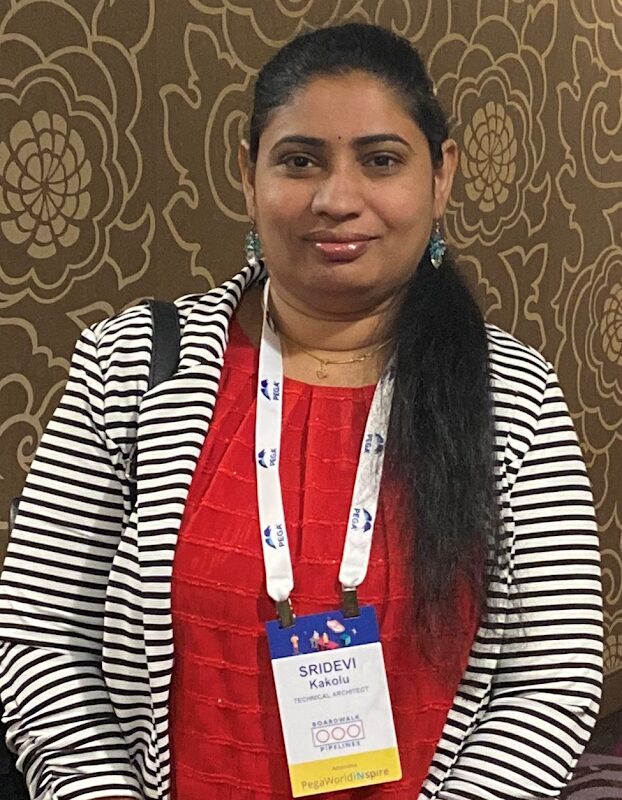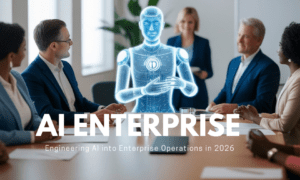The oil and gas industry is important to almost every other sector, powering transportation, manufacturing, and even energy production. Yet, it also faces high operational costs, strict regulations, and a need to improve safety and sustainability. The complexity and risks in oil and gas operations have led companies to embrace automation, with robotics becoming a transformative tool for critical tasks across the upstream, midstream, and downstream sectors.
This is where Sridevi Kakolu has made a substantial impact. As a Technical Architect at Boardwalk Pipelines, Sridevi has become an expert in the digitization and automation of oil and gas operations. Her work focuses on deploying emerging technologies that make fieldwork safer, more efficient, and more aligned with environmental standards. Through robotic automation, Sridevi has helped organizations gain better insights into their processes, empowering them to improve performance, ensure regulatory compliance, and embrace a more sustainable future.
Who is Sridevi Kakolu?
Sridevi Kakolu is a well-regarded expert in the oil and gas industry, particularly known for her work in digitization and automation. Her expertise has reshaped the way companies look at data and workflows, providing them with better insights and allowing them to optimize processes. With her role at Boardwalk Pipelines, Sridevi has overseen numerous innovations that improve safety, efficiency, and sustainability in natural gas operations. Her work with robotic automation has proven instrumental in driving productivity and efficiency, especially as she helps Boardwalk Pipelines bridge the gap between traditional methods and modern technology.
Robotics in Upstream Oil & Gas Operations
In the early stages of oil and gas production, companies focus on finding, drilling, and extracting resources. This phase is important because it involves locating and evaluating potential oil and gas reserves before drilling begins. However, working in risky offshore environments can put workers in danger. Automation, led by experts like Sridevi Kakolu, is improving safety and efficiency here.
Sridevi uses robotic automation to make processes like seismic surveys more accurate, helping companies find the best drilling spots with minimal environmental impact. For example, Remote Operated Vehicles (ROVs) with cameras and robotic arms allow precise checks of drillship positions and anchors, reducing human exposure to hazards. Her work in automating these tasks supports around-the-clock monitoring and safer operations, cutting costs and reducing human errors. Sridevi’s innovations are helping streamline oil and gas exploration and production.
Robotics in Midstream Oil & Gas Operations
The midstream segment, which involves transporting and storing resources like oil and gas, is benefiting significantly from robotics and automation. Any leaks or equipment issues can have serious environmental impacts, so safety is crucial.
Sridevi Kakolu has been instrumental in applying robotics to make these operations safer and more efficient. She introduced robotic solutions for pipeline inspections and maintenance, helping to prevent spills and damage. Robots and drones now check the condition of pipelines, spotting problems like blockages or corrosion early. When issues are found, Sridevi ensures they are quickly fixed with robotic technology, minimizing operational disruptions.
Additionally, robots provide real-time data that helps meet regulatory standards and prevents equipment failures. Sridevi’s efforts at Boardwalk Pipelines have boosted environmental protection by adopting robotic systems that regularly monitor pipelines and manage risks before they become serious.
Robotics in Downstream Oil & Gas Operations
Downstream operations turn crude oil and natural gas into products like LPG, gasoline, and jet fuel. This process needs careful control to meet safety and quality standards. Working in offshore environments can be dangerous, so robotics play a valuable role in this field. Sridevi Kakolu’s expertise has brought many improvements by automating key tasks like handling materials, refueling, and inspections.
For example, Autonomous Underwater Vehicles (AUVs) can inspect pipelines up to 6,000 meters underwater, spotting corrosion or damage. These robots also gather data to support maintenance, helping prevent leaks and keep pipelines safe. Sridevi has also promoted using robotics to monitor product quality, ensuring they meet regulations. By introducing these automated systems, she has helped companies improve safety, meet standards, and run operations more efficiently in the downstream sector.
The Benefits of Robotics and Automation in Oil & Gas
The oil and gas industry faces unique challenges, and Sridevi Kakolu’s work in automation addresses several of these. Some of the key benefits include:
- Improved Safety: By using robots in hazardous environments, companies can reduce the risk of accidents, keeping workers safe and reducing costs associated with safety incidents.
- Enhanced Efficiency: Robotic automation optimizes resource allocation and reduces the time required to complete tasks, leading to faster and more reliable operations.
- Environmental Sustainability: Robotic systems help minimize the environmental impact of oil and gas operations by reducing emissions, spills, and other ecological risks.
- Regulatory Compliance: Real-time monitoring and predictive maintenance ensure companies can meet stringent regulatory requirements, reducing the risk of penalties or operational shutdowns.
How Sridevi Kakolu is Driving Innovation
Through her expertise in automation, Sridevi Kakolu has shown that the oil and gas industry can benefit significantly from digital transformation. By integrating advanced technologies like Artificial Intelligence (AI) and the Internet of Things (IoT), she has helped Boardwalk Pipelines and other companies improve decision-making and optimize workflows.
Sridevi’s focus on fostering a culture of innovation allows companies to adopt a proactive approach, embracing the benefits of automation in a constantly evolving industry. Her efforts in digitizing systems and workflows enable faster responses to operational challenges and make it easier for companies to adapt to market demands and regulatory changes.
Conclusion
Sridevi Kakolu has advanced robotic automation in the oil and gas industry, helping companies improve safety, efficiency, and sustainability in all areas of their work. As a Technical Architect at Boardwalk Pipelines, she connects traditional methods with digital solutions. Her work makes robotic automation a key part of the company’s strategy, supporting safer, more precise, and eco-friendly operations. Kakolu’s expertise shows how automation can bring important changes to the industry.



































